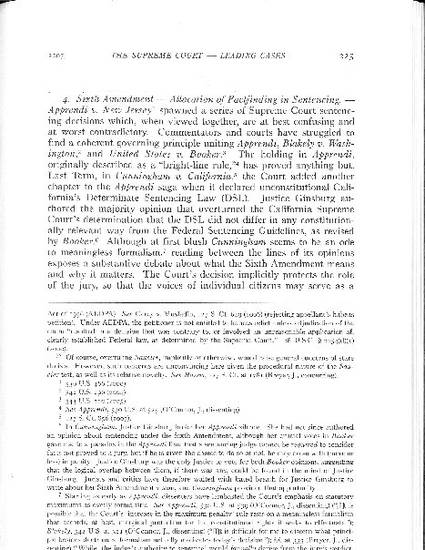
- Cunningham v. California,
- Determinate Sentencing Law,
- Sixth Amendment
Sixth Amendment--Allocation of Fact-finding in Sentencing.--Apprendi v. New Jersey spawned a series of Supreme Court sentencing decisions which, when viewed together, are at best confusing and at worst contradictory. Commentators and courts have struggled to find a coherent governing principle uniting "Apprendi," "Blakely v. Washington," and "United States v. Booker." The holding in "Apprendi," originally described as a bright-line rule, has proved anything but. Last Term, in "Cunningham v. California," the Court added another chapter to the Apprendi saga when it declared unconstitutional California's Determinate Sentencing Law (DSL). Justice Ginsburg authored the majority opinion that overturned the California Supreme Court's determination that the DSL did not differ in any constitutionally relevant way from the Federal Sentencing Guidelines, as revised by "Booker". Although at first blush "Cunningham" seems to be an ode to meaningless formalism, reading between the lines of its opinions exposes a substantive debate about what the Sixth Amendment means and why it matters.
Available at: http://works.bepress.com/rebecca-allensworth/7/
